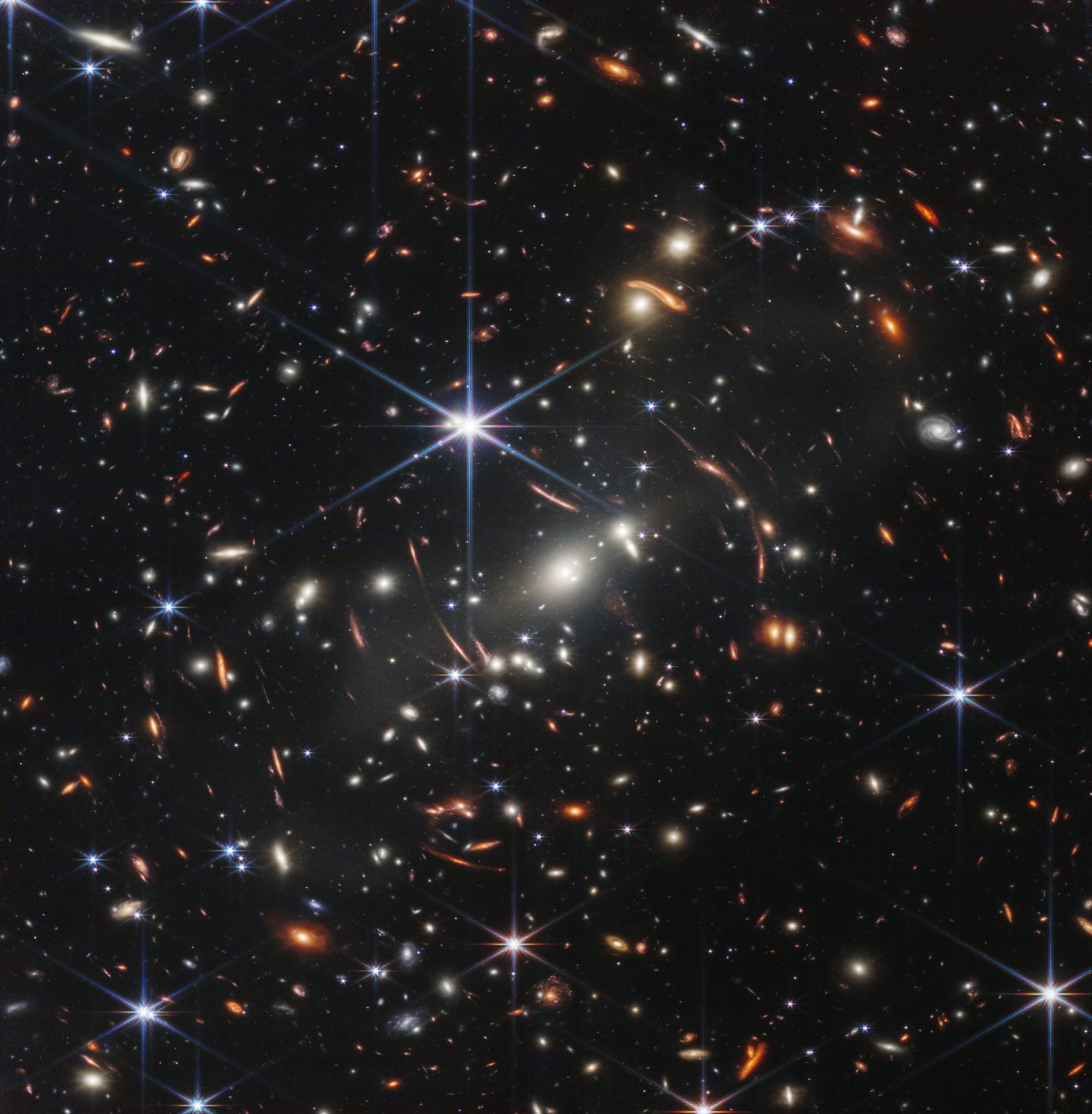


Stephen Meyer: Scientific Arguments for a Theistic Worldview

Stephen Meyer: Has the West Forgotten God?
In today’s ID the Future philosopher Stephen Meyer revisits Aleksandr Solzhenitsyn’s Templeton Prize speech from May 10, 1983, where Solzhenitsyn indicted the West for forgetting God. Meyer argues that Solzhenitsyn’s indictment is more timely than ever. But at the same time, there is today more scientific evidence than ever for the existence of a personal God, Meyer says, and the argument from intelligent design is a powerful means to awaken individuals to the presence of God and to renew culture. Meyer goes on to support those claims with concrete examples. Today’s episode is taken from a talk Dr. Meyer gave at the 2023 Dallas Conference on Science and Faith. Meyer is author of the bestselling book Return of the God Hypothesis: Three Scientific Discoveries that Reveal the Mind Behind the Universe.

Stephen Meyer: James Webb Telescope Supports the Big Bang
On this ID The Future, Return of the God Hypothesis author Stephen Meyer again speaks with radio host Michael Medved about the extraordinarily powerful new James Webb space telescope. One researcher, Eric Lerner, has claimed that what the Webb telescope is seeing many billions of light years away (and therefore, many billions of years in the past) undercuts the Big Bang theory. But according to Meyer, the new photographs coming back from Webb actually further confirm the reality that our universe had a beginning (“the Big Bang”) and that it has been expanding ever since. What these Webb images are forcing a rethink on, Meyer says, is the conventional wisdom among cosmologists on galaxy formation in the early universe. Meyer insists the evidence for a cosmic beginning is stronger than ever, as is the God hypothesis that it supports. Image from NASA.

Emily Reeves Previews Dallas Science/Faith Conference 2022
On this ID the Future, host Andrew McDiarmid sits down with Emily Reeves, one of the speakers for the January 22, 2022, Dallas Science and Faith Conference. The two walk through the lineup of speakers for the conference (Stephen Meyer, Brian Miller, Casey Luskin, Ray Bohlin, and others), tease some of the talks, and discuss how to join the one-day event live, either in person in the Dallas area or online. For more about the conference, slated for this Saturday, and to sign up, go here.

Andrew Klavan and Stephen Meyer Talk God and Science
On this ID the Future Stephen Meyer sits down with talk show host and bestselling novelist Andrew Klavan to discuss Meyer’s Return of the God Hypothesis. In this fast-paced conversation the pair touch on the Judeo-Christian roots of science, how fine tuning in physics and cosmology point to intelligent design, and how a great many scientists held out hope that the universe was eternal and therefore did not require a creator, but eventually threw in the towel as evidence mounted for a cosmic beginning. What about the multiverse hypothesis as an escape for atheists wishing to explain away the evidence for a cosmic designer? Meyer explains why it fails Occam’s Razor, and then he and Klavan discuss a noted atheist philosopher who frankly admits that he doesn’t want theism to be true and yet also admits that modern Darwinism has crashed and burned, and the evidence for design in various scientific fields is too powerful to be ignored. Today’s material is borrowed, with permission, from the Daily Wire and Episode 1050 of the Andrew Klavan Show. If you value the work of Stephen Meyer, our other design theorists, and the work of Discovery Institute’s Center for Science and Culture, along with intelligent design resources such as ID the Future, please consider a gift this holiday season. The generous donations of our supporters and regular listeners make this good work possible. Your gift will translate into more and more people encountering—some for the very first time—the powerful evidence that the universe is not meaningless but instead is charged with evidence of design and purpose. Click here to view donation options.

Pt. 4: Stephen Meyer and Skeptic Michael Shermer
This ID the Future wraps up a lively four-part series between religious skeptic Michael Shermer and Return of the God Hypothesis author and philosopher of science Stephen Meyer. Here Meyer underscores the fact that every worldview must posit something as the prime reality, and he argues that positing mind (rather than matter) as the prime reality solves far more problems in science, and not just in origins science. What about the idea of a multiverse to explain the fine tuning of the laws and constants of physics? Meyer concedes that this is a solution of sorts, but it comes at a tremendous cost, which he explains. That’s just a taste of where Meyer and Shermer go in this final segment. Also threading its way through this rich finale–Deepak Chopra’s eastern take on reality, the mind-bending idea of absolute nothingness, mind-body dualism, Michael Polanyi, John Searle, and even a cameo appearance from the Boltzmann brain. This podcast series is posted here by permission of Michael Shermer. The full video conversation is available here.

Pt. 3: Stephen Meyer and Skeptic Michael Shermer
On this ID the Future, Return of the God Hypothesis author Stephen Meyer and skeptic Michael Shermer address the question of how a divine immaterial being could act in the material world to design and fashion things such as the first life. Meyer argues that while we don’t know precisely how an immaterial mind would do this or did do this, we have good evidence that minds can and do affect matter, as for instance in the evidence that our minds can affect our brains and, by extension, our bodies. Meyer and Shermer also discuss the idea of front-loaded intelligent design—that is, where God loaded into the moment of the Big Bang everything necessary for the emergence of stars, planets, Earth, and life’s diversity, with no need for subsequent design tinkering. Meyer says he doesn’t have an in-principle objection to that idea, but that the evidence doesn’t support it. He also makes a distinction between two distinct modes by which God can direct things in the natural world, an analytic distinction that Meyer notes is not part of his design arguments in Return of the God Hypothesis but instead is drawn from the theology of nature developed many hundreds of years ago. The two also touch on the idea of extra-terrestrials becoming so technologically advanced that their abilities become indistinguishable from God’s, what Shermer has labeled Shermer’s Last Law. Might such beings be the explanation for certain features in nature that appear to be intelligently designed? Meyer argues that no, there would always remain certain features of the universe that are only adequately explained by reference to a designer with the skillset of the God of theism. This is part three of a four-part IDTF series, and is reposted here by permission of Michael Shermer.

Pt. 2: Stephen Meyer and Skeptic Michael Shermer
Today’s ID the Future continues a lively and cordial conversation between atheist Michael Shermer and Stephen Meyer, author of Return of the God Hypothesis: Three Scientific Discoveries That Reveal the Mind Behind the Universe. In this segment of the four-part series, Shermer and Meyer discuss a fourth argument for theism, the moral law within. Then they discuss the similarities and differences between inferring design for something like the Rosetta Stone versus inferring intelligent design from the information in DNA or the fine tuning of the universe. The interview is reposted here by permission of Michael Shermer.

Stephen Meyer and Skeptic Michael Shermer, Pt. 1
Today’s ID the Future spotlights the first part of a lively and cordial conversation between host and atheist Michael Shermer and Stephen Meyer, author of Return of the God Hypothesis: Three Scientific Discoveries That Reveal the Mind Behind the Universe. In this first of the four-part series, the two touch on everything from Meyer’s three key lines of evidence for theism to a quick flyover of less well-known materialistic origins theories, including the oscillating universe model, panspermia as an explanation for the origin of the first life on earth, and Stephen Hawking’s idea of imaginary time. Meyer lumps many of these ideas under what he terms exotic naturalism and suggests that the atheists who defend these explanations are multiplying exotic and unobserved entities to hold at bay a much simpler and more reasonable explanation for the evidence—namely, intelligent design. But is Meyer simply guilty of confirmation bias in arriving at his conclusion? Meyer turns the question around and suggests that it’s those who are wedded to methodological materialism who appear to be led by a confirmation bias. The interview is reposted here by permission of Michael Shermer.